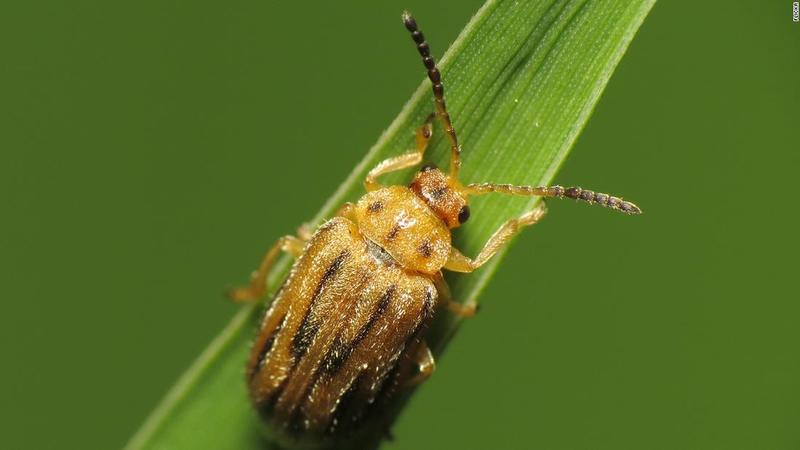There are many ailments and disabilities that people can clearly see that some suffer from. The more visible the ailment, the more empathy and sympathy you receive, however, if your ailment isn't easily visible to the naked eye, people will just think you complain. Does that sound familiar to you?

There are millions of people who suffer from a very silent and invisible ailment. It may not be life threatening, but it sure is annoying and life impacting. I am talking about allergies. Allergies can range in severity to where it's just a couple of sniffles, to where life is completely miserable.
There are plenty of solutions to the allergy problem, like pills, shots, and natural remedies, but they can be expensive and not work for some people. Who wants to have to keep Claritin handy on them at all times? Luckily, there may be a solution hidden in a surprising place: a little green bug.
One of the most common types of allergies is to ragweed plants. These plants are chalk full of tiny little pollen particles that spread incredibly easily. They trigger some of the most common allergy symptoms. Stuffy nose., sneezing, and itchy eyes. If you've encountered those symptoms while out on a walk on a sunny day, you may have hayfever allergy. It is incredibly common. In Europe it affects 13.5 million people, while in the United States it affects almost twice as many with 23 million people.

Scientists are looking into ways to reduce this blight on our society. The key might lie in a tiny little leaf beetle. Leaf beetles eat the ragweed leaves and flowers, enough that the pollen can be dramatically reduced. Scientists are finding this to be a relief in warm parts of Europe.
The specific leaf beetle that scientists are looking into is the Ophraella communa. Oddly enough, it is native to North America. It made its way to Europe in 2013 accidentally. According to Henz Müller-Schäre, the beetle was first spotted in Southern Switzerland and then came to Italy, most likely as an airplane stowaway. He is a professor of biology at the University of Fribourg in Switzerland, as well as the author of the new study.

You might be wondering just how big of an impact a bug could make. The study which can be found in the journal, Nature Communicates, states that beetles could vastly reduce the number of people who are affected by ragweed allergies. The study claims that up to 2.3 million people would be relieved, which would save $1.2 billion dollars a year in associated health costs.
Ever since being introduced to Europe via Italy, studies say that the pollen production can be reduced by 82%. Muller-Sharer said, "A few beetles can defoliate a large Ambrosia plant in two to three days completely, then they regrow but are eaten up again. Ophraella is a feeding machine 24 hours a day.” The only issue is that the beetle is not nearly as effective in colder climates. They don't reproduce as much in cold environments, so this is only something that could benefit warmer areas.

The beetle has also been used in China for the same purposes. The beetles were able to effectively reduce pollen there as well. In North America it also has an impact on ragweed but not nearly as much since there are more predators in its native North America than compared to elsewhere.